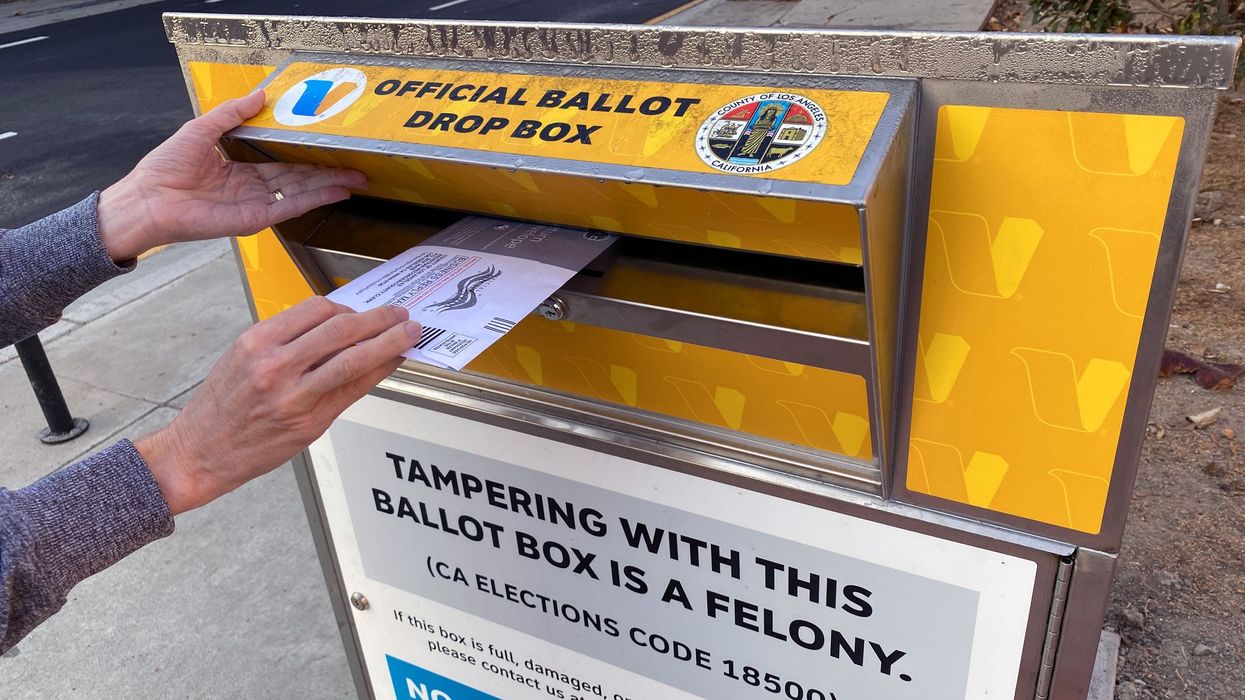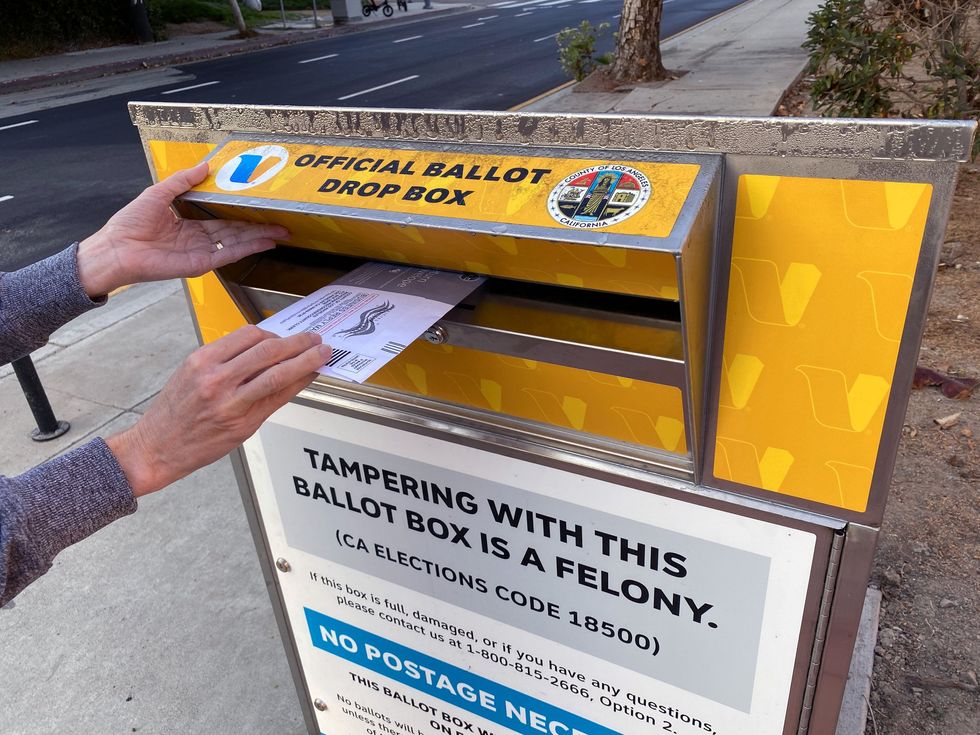Conspiracy Resource
Conspiracy news & views from all angles, up-to-the-minute and uncensored
election fraud
Election fraud conspiracies
Trump likely won the 2020 election after all

According to the legacy news networks, social media platforms, various deep state actors, and other corrupt institutions, the 2020 election was the safest and most secure in history and anyone who questioned Joe Biden’s victory was a wacky “election denier.”
That has been the dominant narrative for the past three years, which has produced a chilling effect and caused many to forgo conducting a deep dive concerning whether the 2020 election really was as safe and secure as we have been told it was.
It is incumbent upon the 50 states to ensure that their voting systems are as safe and secure as possible. We still have time to make necessary changes.
In reality, the 2020 election was most likely marred by widespread mail-in voting fraud. And even worse, the extensive mail-in voter fraud almost certainly tipped the election in favor of Joe Biden.
In other words, had rampant mail-in voter fraud been prevented in the 2020 election, Donald Trump would have won the Electoral College and been re-elected to a second term.
At this point, you may be wondering how I can be so sure that the 2020 election was tainted by mail-in voter fraud. The answer is simple: The voters have told us so.
In late 2023, the Heartland Institute and Rasmussen Reports conducted a simple survey to gauge the degree of voter fraud in the 2020 election. We asked 1,085 voters who participated in the 2020 election about their voting behaviors three years prior. To our surprise, the results showed that at least one in five mail-in voters admitted to committing ballot fraud in the 2020 election.
Our findings caused quite a stir in the media, especially among those who suspected the 2020 election was not completely secure due to the dubious changes to voting rules state officials unconstitutionally imposed under the cover of COVID-19.
Shortly after the poll was released, former President Trump called it “the most important poll released in the last 20 years” and “the biggest story of the year.”
Eventually, we began to wonder if we could apply the poll results to publicly available election data to determine whether mail-in voter fraud impacted the outcome of the election. This was no easy task.
After extensive analysis using the raw survey data provided by Rasmussen coupled with state-based and other reputable sources documenting mail-in vote totals, we concluded that mail-in voter fraud almost certainly changed the 2020 election outcome in all six of the crucial swing states.
This is all laid out in great detail in the Heartland Institute’s latest policy study, aptly titled “Who Really Won the 2020 Election?” (Spoiler alert: not Joe Biden.)
Here are just a few of the main takeaways:
Upon further analysis of the Rasmussen survey data, we found that more than one in four mail-in voters (28.2%, to be precise) admitted to committing at least one kind of election fraud in the 2020 election.
Under multiple scenarios, with differing rates of mail-in voter fraud taken into account, our results indicate that Trump would have won the Electoral College in the 2020 election had fraudulent mail-in ballots not been counted.
Even if the level of fraud detected in the Heartland/Rasmussen survey substantially overstated mail-in voter fraud by multiple orders of magnitude, Trump would likely still have won the 2020 election.
According to the official 2020 election results, Biden defeated Trump in the Electoral College 306 to 232. The national vote tally was similarly lopsided, with Biden receiving approximately 81 million votes to Trump’s 74 million votes.
In almost all the hypothetical scenarios we lay out, Trump would have won enough Electoral College votes to defeat Biden soundly.
But the 2020 election, like most recent national elections, was ultimately decided in the swing states.
In 2020, Biden won each of the six swing states by fewer than 20,000 votes, a tiny margin in the context of the overall vote.
But here’s the rub: When we extrapolated for mail-in voter fraud in the six crucial swing states, using state-specific mail-in voter data and accounting for a variety of fraud rates (from the 28% level all the way down to the 1% level), the Electoral College vote changed considerably.
In almost all the hypothetical scenarios we lay out, Trump would have won enough Electoral College votes to defeat Biden soundly. In other words, Biden’s Electoral College victory, although seemingly large, was predicated on razor-thin margins in all six of the swing states.
We know for a fact that each of the six swing states changed its election rules in the months leading up to the 2020 election to allow for mass mail-in voting based on inaccurate state voter registration rolls. We also know that several of these states made it easy for mail-in voting fraud to be committed by eliminating common-sense guardrails like signature verification and permitting shady election practices to take place like ballot harvesting.
So it stands to reason that these unprecedented last-minute changes to voting procedures likely resulted in a flood of fraudulent ballots being counted. It also stands to reason that widespread mail-in voter fraud in the 2020 election disproportionately benefitted Joe Biden, seeing that he received more than twice as many mail-in votes as Trump.
When considering all these factors, it seems obvious that Biden’s 2020 victory was aided and abetted by rampant mail-in voter fraud. But as they say, what’s done is done. It does no good to cry over spilled milk or shady elections.
With less than nine months before the 2024 presidential election, however, we must ensure that this does not happen again. It is incumbent upon the 50 states to ensure that their voting systems are as safe and secure as possible. We still have time to make necessary changes.
Going forward, will enough states do the right thing? Or, like so many other things in today’s upside-down world, is the quaint American tradition of free and fair elections a vestige of the past?
Read MoreU.S. Appeals Court Rules Trump Is Not Immune From Prosecution In 2020 Election Interference Case
A federal appeals court ruled on Tuesday that former President Donald Trump can face trial on charges that he had plans to overturn the results of the 2020 election, which rejects the 45th president’s claims that he is immune from prosecution.
Read More









